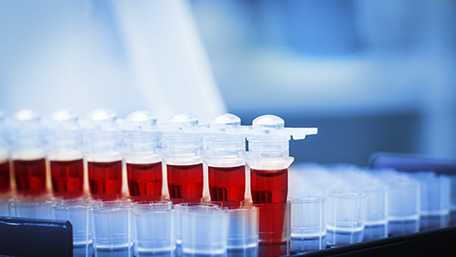New Study Findings: Gender, race and diet affect platelet function tests in normal subjects, contributing to a high rate of abnormal results
 The journal British Journal of Haematology published the results of a study that was designed to look at factors that may affect the results of certain platelet function tests. Researchers collected blood samples from study participants on a regular basis, as well as information that participants recorded in diaries on daily drug, food, and alcohol intake, and illness prior to each blood draw. The goal was to find out what factors might affect platelet function in healthy people. This is important because platelet function tests are widely used to diagnose platelet function disorders. However, the accuracy of these tests to diagnose platelet disorders has not been well studied. Researchers from CDC and Emory University found that among healthy people who had not taken any medications, up to 30% of tests were abnormal. In addition, results were more often abnormal in men, people who are Black, and after eating foods rich in flavonoids (plant products that work with vitamins), such as chocolate, red wine and tea. You can read the article’s abstract here.
The journal British Journal of Haematology published the results of a study that was designed to look at factors that may affect the results of certain platelet function tests. Researchers collected blood samples from study participants on a regular basis, as well as information that participants recorded in diaries on daily drug, food, and alcohol intake, and illness prior to each blood draw. The goal was to find out what factors might affect platelet function in healthy people. This is important because platelet function tests are widely used to diagnose platelet function disorders. However, the accuracy of these tests to diagnose platelet disorders has not been well studied. Researchers from CDC and Emory University found that among healthy people who had not taken any medications, up to 30% of tests were abnormal. In addition, results were more often abnormal in men, people who are Black, and after eating foods rich in flavonoids (plant products that work with vitamins), such as chocolate, red wine and tea. You can read the article’s abstract here.
What is a platelet?
Platelets are part of blood and they help the blood clot and stop bleeding. They are smaller than red or white blood cells.
What is a platelet function test?
A platelet function test is a blood test that is used to determine how well the platelets clump together to form blood clots.
Why is platelet function testing important?
Platelet function testing can help determine if a person has a platelet function disorder, which can cause or has the potential to cause excessive bleeding. Platelet function disorders are a common cause of excessive bleeding in women during their menstrual period or delivery of a baby.
Main Findings from this Study
- In blood tests from healthy people with no drug exposure, up to 30% of the platelet function tests were abnormal. Results were more often abnormal in men, Blacks, and after ingestion of flavonoid-rich foods.
- The findings have important implications regarding the accuracy of the platelet function tests used to diagnose bleeding disorders.
- The findings are also important because they demonstrate that eating foods rich in flavonoids might affect platelet function test results.
About this Study
Researchers performed platelet function tests in 64 healthy people, using 4 different methods. These study participants were studied at 2-week intervals over a 3-month period. A total of 349 samples were tested, an average of 4-5 samples per person. Study participants were asked to record medications taken and foods eaten during the 2-week period prior to each blood draw.
More Information
To learn more about platelet function disorders, please visit the Canadian Hemophilia Society and/or read the following publications from the World Federation of Hemophilia and from researchers from CDC and their collaborators (one published in 2003 and another in 2011).
Paper Reference
Miller, C. H., Rice, A. S., Garrett, K. and Stein, S. F. (2014). Gender, race and diet affect platelet function tests in normal subjects, contributing to a high rate of abnormal results. British Journal of Haematology. doi: 10.1111/bjh.12827.
- Page last reviewed: April 30, 2014
- Page last updated: April 30, 2014
- Content source:


 ShareCompartir
ShareCompartir